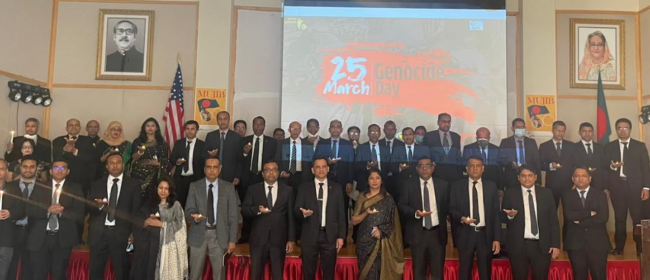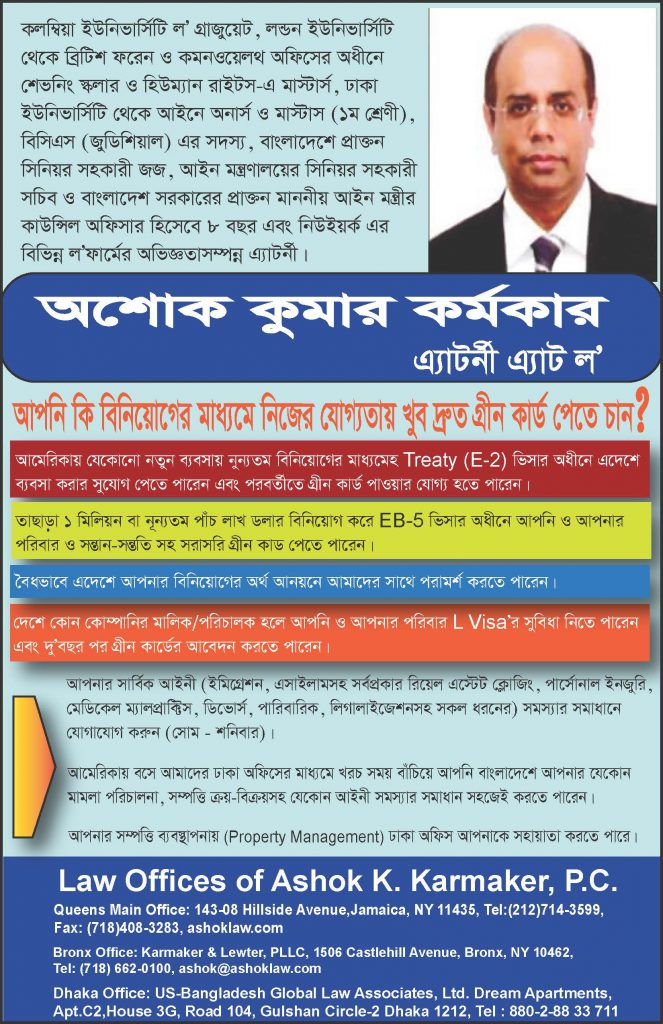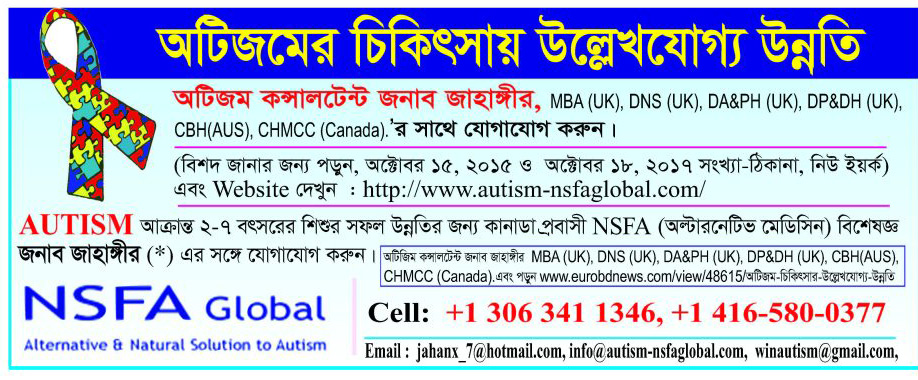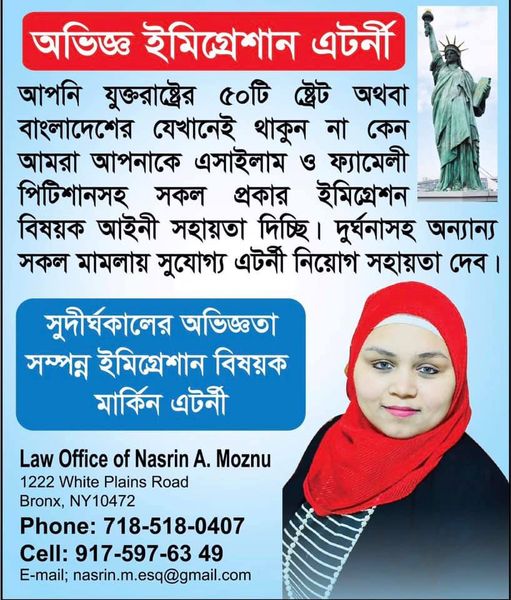“Genocide Day” observed at Bangladesh Embassy in Washington DC

Usanewsonline.com Desk: The Embassy of Bangladesh in Washington, D.C. observed the “Genocide Day” on Friday, recalling one of the most brutal genocides in world history that was committed by the Pakistan army on 25th March in 1971 in Bangladesh.
 The Embassy organized elaborate programmes to pay deep homage to the martyrs who were killed mercilessly by the Pakistan military junta’s operation code named “Operation Searchlight” on the black night of 25th March that year.
The Embassy organized elaborate programmes to pay deep homage to the martyrs who were killed mercilessly by the Pakistan military junta’s operation code named “Operation Searchlight” on the black night of 25th March that year.
The day’s programmes began with observance of one-minute silence to pay profound respect to the martyrs of the War of Liberation. This was followed by screening of a documentary titled “Recognising the 1971 Bangladesh Genocide: An Appeal for Rendering Justice”.
Later, the messages issued by the President and the Prime Minister were read out.
A special prayer was offered seeking divine blessings for eternal peace of the departed souls of Father of the Nation Bangabandhu Sheikh Mujibur Rahman and the martyrs of the War of Liberation.
Ferdousi Shahriar, the Charge d’Affaires of the Bangladesh Embassy, Professor Irene Victoria Massimino, Co-founder and Co-President of the Lemkin Institute for Genocide Prevention, and Dr. Tawheed Reza Noor, Visiting Scholar of the State University of New York and Member of International Association for Genocide Scholars (IAGS) spoke at a discussion session held virtually at the Embassy.
Dr. Tawheed Reza Noor, son of martyred intellectual and renowned journalist Serajuddin Hossain, worked with the Lemkin Institute for Genocide Prevention (LIGP) that on 31 December, 2021 recognized as “Genocide” the Pakistan army’s atrocities during Bangladesh’s Liberation War in 1971.
Noor played an instrumental role behind the historic recognition as the US-based organisation responded positively to his appeal which he initiated with the institute in mid-November last year, the year that commemorated 50th anniversary of Independence of Bangladesh.
The Visiting Scholar of the State University of New York said Genocide Watch, another US-based organisation, recognised as genocide the brutal crimes committed by the Pakistani occupation forces a month after LIGP’s recognition.
Prof Massimino, in her remarks, paid tributes to the victims of genocide in Bangladesh and said that the genocide was committed in 1971 against Bengali nation and identity.
Praising the Bangladesh government for its efforts to earn international recognition of the genocide, Prof Massimino, also a lawyer from Argentina, said there are many legal elements to recognise the genocide committed in 1971.
The Co-founder of Lemkin Institute recalled her visit to different sites that bear the marks of genocide in Bangladesh.
Both the speakers shared their thoughts on the efforts of the Bangladesh government and suggested to take a well laid out plan to move forward with the recognition process.
The Charge d’Affaires, in her speech, paid deepest respect to the greatest Bangalee of all times, Father of the Nation Bangabandhu Sheikh Mujibur Rahman, and three million martyrs of the Liberation War.
Ferdousi Shahriar said Bangabandhu formally proclaimed the independence of Bangladesh at the first hour of the 26th March 1971 after the Pakistan army’s barbaric attack.Under Bangabandhu’s fearless leadership, Bangladesh achieved ultimate victory on December 16 in 1971 after the nine-month bloody war against Pakistan, she said.
The programmes of the Embassy ended with staging ‘Candle Light Vigil’ in memory of the martyrs of the War of Liberation. Press Relese


























